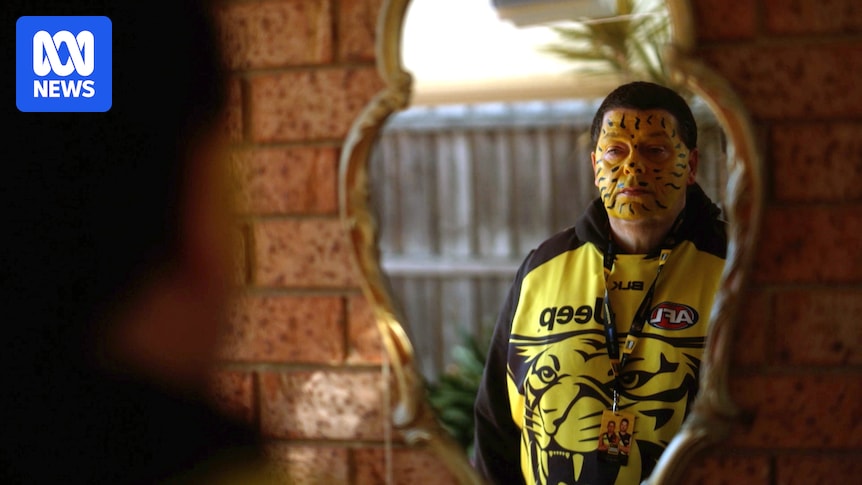
For years, Shaun McDonough has been a familiar figure among Richmond football fans, known affectionately as “Tiger Shaun.” On game days, he dons a tiger suit, complete with face paint and a wig, to support his beloved team alongside his wife, Tania. However, his passion for the game has been overshadowed by the growing presence of gambling advertising and sponsorships in football, serving as a painful reminder of his past struggles with addiction.
“The betting industry in Australia is out of control, especially the online gambling industry,” McDonough asserts. Over a span of three years, the former auto-assembly worker lost approximately $200,000 to an estimated 50 online bookmakers, depleting more than half of his superannuation and the remainder of a WorkCover payout from a workplace injury. “You suddenly go from being comfortable in life to having nothing,” he reflects, noting how his daughter had to assist him with bills due to his financial losses.
McDonough is calling on the Albanese government to implement the recommendations from a parliamentary inquiry chaired by the late Labor MP Peta Murphy. These recommendations include establishing a national regulator and banning gambling inducements and advertising. McDonough, who primarily bet on horse racing, recalls how online bookmakers kept him engaged through offers like deposit matches. “Bonus bets and inducements are there to keep you in the game. It’s as simple as that,” he explains.
Impact of Gambling Advertising
McDonough is particularly concerned about the impact of gambling advertising on younger generations. “Advertising harms the younger generation. It’s the younger generation that we have to look after right now. I want to protect my grandchildren,” he says. “The gambling advertising needs to go, and it needs to go now.”
He also wants the prime minister to understand the profound impact gambling addiction has on individuals and their families. “It eats at you inside. It just eats you away,” McDonough reveals. “All we think about 24/7 is gambling. Where can we get our next win? How can we get our losses back?”
Challenges with BetStop
When challenged on the government’s lack of action on the Murphy review’s recommendations, Prime Minister Albanese often cites the introduction of BetStop, a national self-exclusion register for online betting. McDonough was eager for BetStop’s launch and signed up at 9:30 AM on its first day in August 2023. The Australian Communications and Media Authority (ACMA), which oversees BetStop, reports that about 77% of users have experienced an improved quality of life since registering.
However, McDonough claims that despite being permanently self-excluded since BetStop’s inception, he has been contacted by at least 10 different betting agencies. “BetStop works — if the gambling sites make it work,” he states. On AFL Grand Final day, he received an email from BetGold, a Queensland-based bookmaker, suggesting he could open a new account despite his self-exclusion status. “It basically destroyed my whole day, and it certainly destroyed the days after that as well,” he laments.
Regulatory Oversight and Future Directions
The ACMA is currently investigating whether such communications breach BetStop’s rules and has reached out to wagering companies for explanations. “The ACMA understands how upsetting it would be for anyone to receive messages from a gambling provider after they have actively taken steps to stop online gambling,” a spokesperson stated. A statutory review of BetStop is underway, with findings expected by February 2026.
Consumer advocate Lauren Levin criticizes the leniency of Australian gambling regulations. “Good European regulators require companies to demonstrate that their systems work and they are compliant before they are given gambling licences,” she explains. In contrast, Australian companies often receive 20-year licences without proving compliance, a situation Levin describes as a “perfect recipe for regulatory failure.”
McDonough highlights the proliferation of small online betting agencies with minimal oversight, complicating efforts to prevent contact with self-excluded gamblers. “There’s close to 200 online gambling sites in Australia. That has grown significantly in the past three to four years,” he notes. “Think about what that harm of these almost 200 agencies are doing to Australia.”
The ongoing review of BetStop and potential regulatory reforms could shape the future of Australia’s gambling industry, but for individuals like McDonough, the need for immediate action remains urgent. As the government considers its next steps, the voices of those impacted by gambling addiction continue to call for meaningful change.







